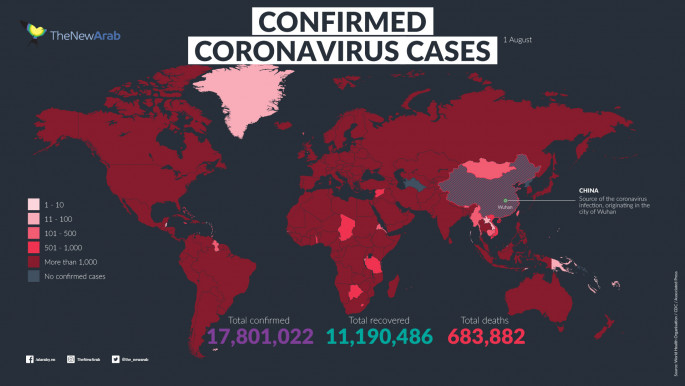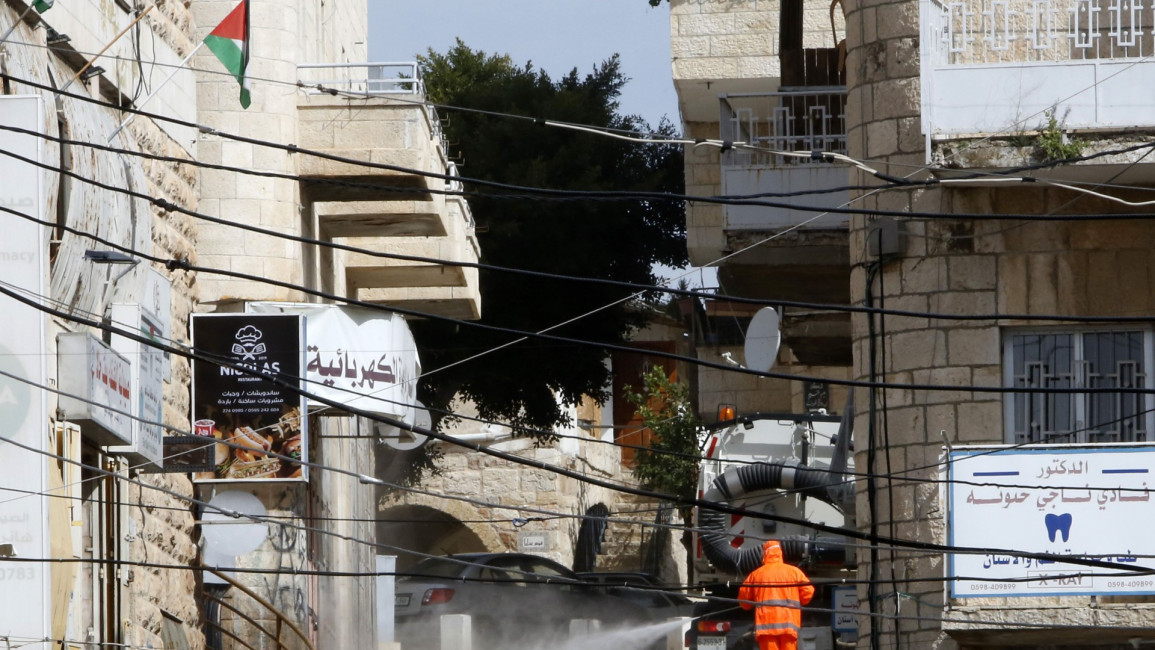Palestine rejects UAE's 'uncoordinated' coronavirus aid, sent via Israel
The Palestinian Authority has rejected a shipment of coronavirus aid sent by the UAE, which was part of the Gulf state's national carrier's - Etihad Airways - first known flight to Israel.
Palestine's health ministry on Thursday released a statement, declining the aid, which was "sent without coordination".
"UAE aid arrived at Ben Gurion Airport without our knowledge and without coordination with us. Therefore we cannot accept it," the ministry said.
According to a report by Maan News Agency, the aid was rejected by Ramallah.
The UAE made its first publicly announced flight to Israel on Tuesday, when Etihad Airways sent medical supplies to Tel Aviv.
Abu Dhabi claims the cargo was to help Palestinians cope with the coronavirus pandemic. There are no operational airports in the occupied Palestinian Territories.
"Etihad Airways operated a dedicated humanitarian cargo flight from Abu Dhabi to Tel Aviv on 19 May to provide medical supplies to the Palestinians," an Etihad spokesperson said at the time. "The flight had no passengers on board."
The official UAE news agency WAM said the flight involved the delivery of 14 tonnes of urgent medical supplies that "will support the efforts to curb the spread of COVID-19 pandemic and its impact in the occupied Palestinian territory".
"The aid includes personal protective equipment, PPE, and medical equipment. Most notably, it includes 10 ventilators that are acutely needed," WAM added.
However, the UAE is one of a number of Gulf states to begin to normalise relations with Israel, despite an official Arab League boycott.
The Arab countries have called for a settlement to the Palestinian-Israeli conflict as a condition for normalising ties with the Israel.
The Arab League frequently denounces Israeli settlement construction in the occupied West Bank, as well as its siege on the Gaza Strip.
But Gulf Arab states have shown signs of a rapprochement with Israel.
The Palestinian-Israeli conflict broke out in 1948 after Zionist militias ethnically cleansed the majority of Palestinians – approximately 750,000 people - from their homeland. Their descendants remain refugees in the countries surrounding Israel to this day.
Thousands of Palestinians were also killed in massacres such as the one which took place in Deir Yassin.
Israel continues to occupy the West Bank, while besieging and regularly launching air raids and ground offensives on the Gaza Strip, in violation of international law.
The peace process between Israel and the Palestinians has stalled amid Israel's unwillingness to recognise Palestinian rights to self-determination and withdraw from the West Bank.
Follow us on Facebook, Twitter and Instagram to stay connected


![President Pezeshkian has denounced Israel's attacks on Lebanon [Getty]](/sites/default/files/styles/image_684x385/public/2173482924.jpeg?h=a5f2f23a&itok=q3evVtko)



 Follow the Middle East's top stories in English at The New Arab on Google News
Follow the Middle East's top stories in English at The New Arab on Google News


